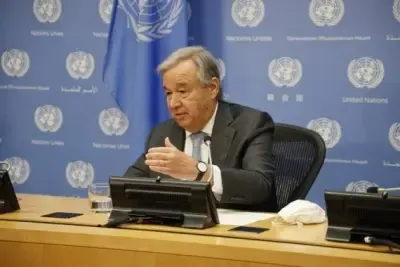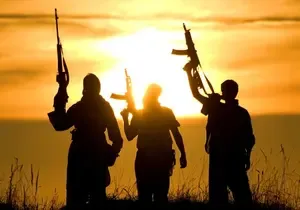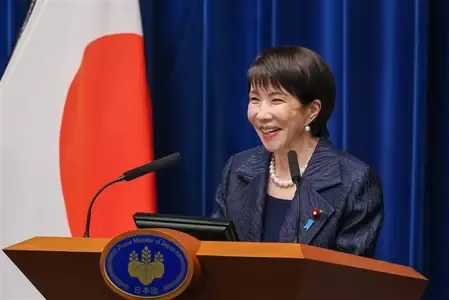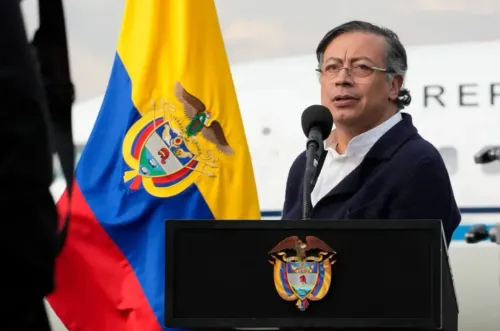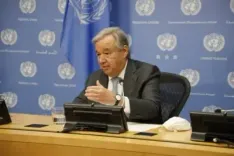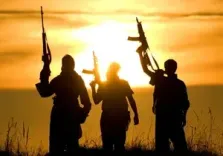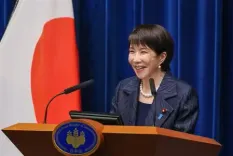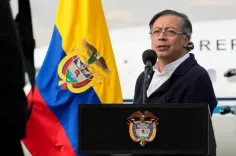How Can Urgent Action and Solidarity Combat Malaria in the Asia-Pacific?
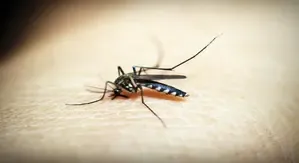
Synopsis
Key Takeaways
- Immediate action is required to combat malaria in the Asia-Pacific region.
- Collaboration and solidarity across nations are essential.
- The summit featured discussions on the latest malaria control strategies.
- Technological innovations are playing a significant role in addressing malaria.
- Awareness of malaria's symptoms and prevention is crucial for reducing cases.
Bali, June 17 (NationPress) Nations across the Asia-Pacific region are urging immediate action and collaboration in the battle against malaria during the two-day 9th Asia-Pacific Leaders' Summit on Malaria Elimination, taking place in Bali, Indonesia.
"Time is the most valuable asset we possess. Amidst this era of unprecedented conflict, contraction, and chaos within the global health framework, what we require most is unity and determination," stated Sarthak Das, CEO of the Asia Pacific Leaders Malaria Alliance, on Tuesday.
The World Health Organization (WHO) has reported over 260 million malaria cases worldwide, leading to more than 600,000 fatalities, three-quarters of whom are children under five years of age.
A technical session featuring international experts took place on the summit's first day, focusing on the latest research, innovations, and strategies for malaria control and elimination, while highlighting the necessity for solidarity across borders, sectors, and communities.
Peter Sands, Executive Director of the Global Fund, emphasized the advancements achieved in combating malaria, coinciding with the increasing global capabilities in technology and medical innovation.
He also highlighted the significance of this summit during a time when nations and regions are facing substantial challenges in the fight against malaria, which includes climate change, conflict, economic pressures, and a notable reduction in external funding, as reported by Xinhua.
"We are at a critical juncture; we can either sustain the remarkable progress made over the last decade or risk regressing," he added.
With around 250 participants from 23 countries and regions, along with international organizations, the annual meeting, themed "Unity in Action, Towards Zero Malaria," also welcomed several Health Ministers from countries such as Papua New Guinea, the Solomon Islands, Timor-Leste, Vanuatu, Laos, Pakistan, and Indonesia.
According to WHO, malaria is a potentially deadly disease transmitted to humans through certain types of mosquitoes. It predominantly occurs in tropical regions and is preventable and treatable.
The disease is caused by a parasite and does not spread directly from person to person.
Symptoms can range from mild to life-threatening, with mild symptoms including fever, chills, and headache, while severe symptoms may involve fatigue, confusion, seizures, and breathing difficulties.
Individuals most at risk for severe infection include infants, children under five, pregnant women and girls, travelers, and those living with HIV or AIDS.
Preventive measures include avoiding mosquito bites and using medication. Treatments can prevent mild cases from worsening.
Malaria is primarily transmitted through bites from infected female Anopheles mosquitoes. Blood transfusions and contaminated needles can also spread the disease. Initial symptoms may be mild and resemble those of many febrile illnesses, making it difficult to identify malaria. If left untreated, P. falciparum malaria can escalate to severe illness and death within 24 hours.

